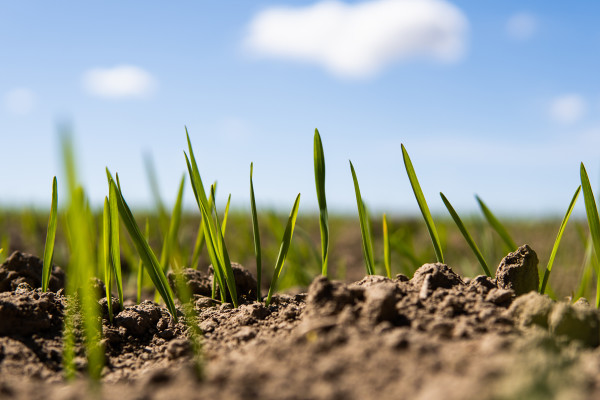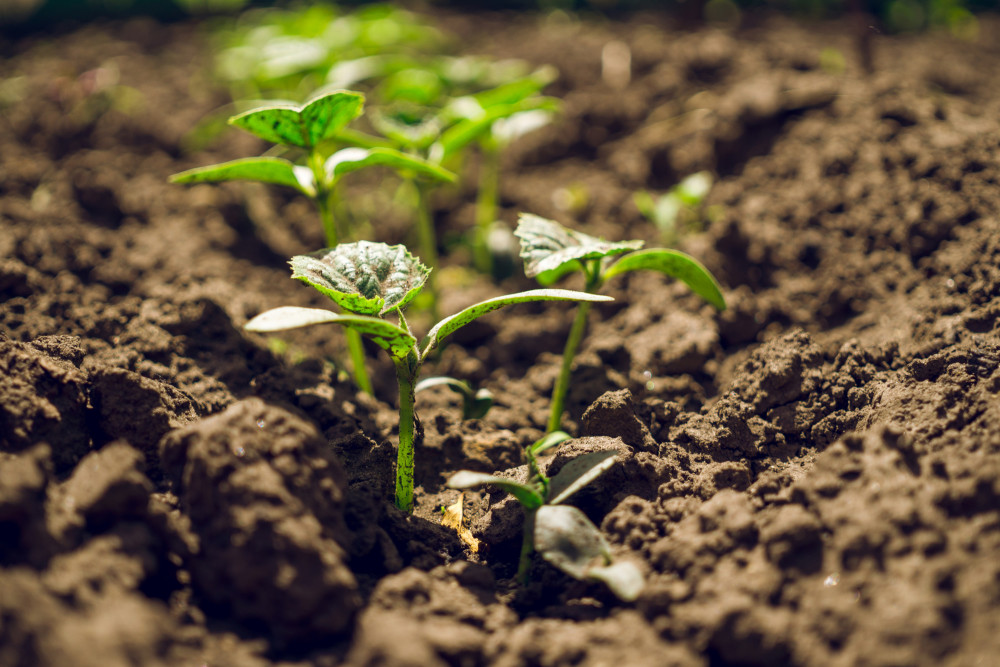
Why is Soil Health So Important?
- By Daily Harvest
- Updated: January 2025

Even if you’re not a hard-core gardener, the importance of soil health cannot be understated. Healthy soil lays the groundwork for healthy and productive food and agriculture systems. But that’s not all. Healthy soil also protects natural ecosystems (can’t live without ‘em) and combats the effects of climate change (very key).
Healthy soil basically functions as a living ecosystem that sustains all the plants, animals, and humans on earth. It’s able to do so thanks to an abundance of bacteria, fungi, algae, and other microbes dwelling within it. In fact, one teaspoon of soil can house as many as one billion bacteria, several yards of fungal filaments, and thousands of other microscopic organisms.
It’s safe to say that soil is an unsung hero when it comes to supporting life on earth.
Here are some of soil’s most heroic roles:
Storing water and regulating water cycle (including rain, snowmelt, and irrigation)
Sustaining animal and plant life
Filtering potential contaminants and pollutants
Storing and transferring nutrients between living and nonliving things in the environment
Providing support and protection for plant roots, physical structures, and more
Soil is resilient, but it’s not immune to the batterings of climate change and human influence. In fact, some research shows that soil may take hundreds of years to naturally develop. So if soil is degraded or destroyed, we can’t just produce more on demand.
Soil health also plays a really important role in growing nutritious food to feed all animals and humans. Unhealthy soil can affect food production, which can have far-reaching effects on food security and human health. Healthy soil is essential for eliminating hunger and achieving other sustainability goals, according to the United Nations.

Farming plays a huge role in soil health. Many industrial agriculture methods negatively impact soil health. When farms use synthetic fertilizers and pesticides, this may reduce the diversity of healthy bacteria in soil and contribute to the buildup of heavy metals and nitrates in crops and livestock that can be harmful to humans and our waterways.
Many non-organic agricultural methods are not ideal for supporting healthy soil, but sustainable agriculture is a whole different story.
Here are some ways sustainable farming and soil management techniques (like planting cover crops and rotating the crops grown on a plot of land) can benefit and support healthy soil:
Improving soil’s ability to hold onto water
Reducing the need for pesticides, which encourages healthier, more biologically diverse soil that’s full of healthy bacteria
Improving soil’s ability to capture and store carbon dioxide from the atmosphere, which helps us fight climate change.

In our quest for a sustainable future, small changes make a big difference. That’s why, at Daily Harvest, we’re focused on a holistic approach to growing food that considers the entire agricultural ecosystem + works with nature, not against it.
As a part of our efforts to transform the food system, we’ll be working to test the water, carbon, economic, and biodiversity impacts of practices like cover crops and composting and prove the viability in this way of growing. Learn more about The Almond Project – a multi-year farmer-led partnership, paving the way towards a more resilient future for almonds.
Explore deliciously nourishing food that's good for you and the planet at daily-harvest.com.
When would you like your next delivery?
Note On Your Existing Order
Order #{{number}} for your most recent box has already been processed and is still scheduled to arrive {{date}}.
I understand Save CancelYou must meet the minimum order requirements for the box to ship. Add your replacement item(s) first and then try deleting this again.
When would you like your next delivery?
Note On Your Existing Order
Order #{{number}} for your most recent box has already been processed and is still scheduled to arrive {{date}}.
I understand Save CancelYou must meet the minimum order requirements for the box to ship. Add your replacement item(s) first and then try deleting this again.
Loading...